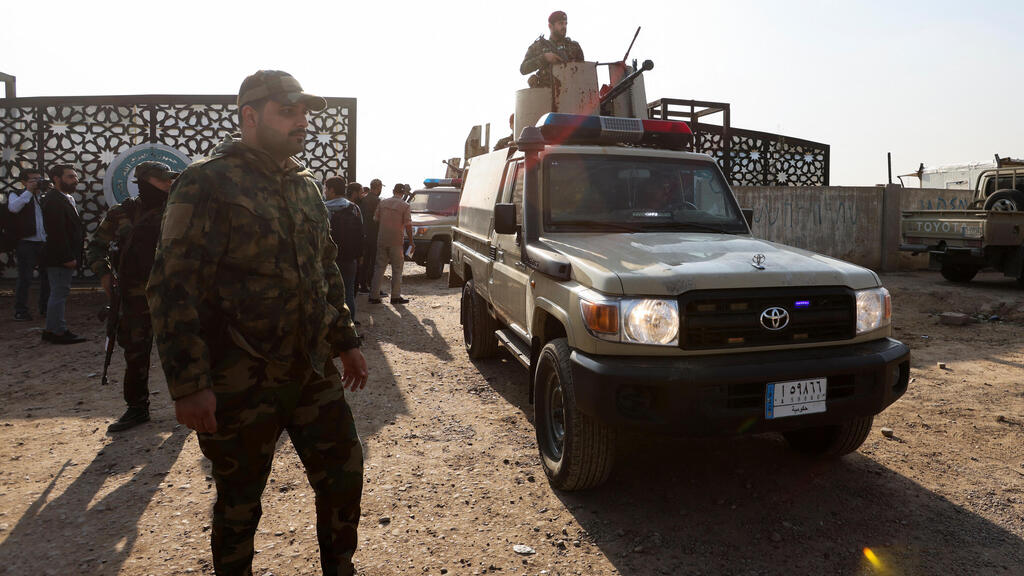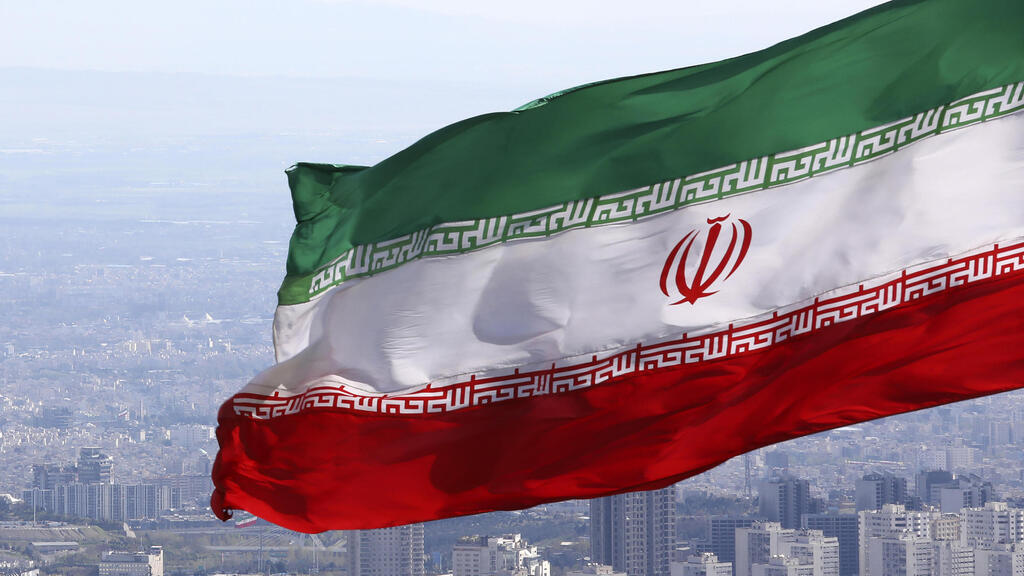U.S. Senate Foreign Relations Committee members have been hyper-focused on finding solutions to stopping Iran and its proxies from attacking the United States and its allies, primarily Israel.
This has only intensified following the over 150 attacks on the U.S. and its allies since the October 7 Hamas attack, a number that does not include the near-daily rocket attacks and other forms of terrorist activities conducted against Israel by Iranian-backed Hamas and Hezbollah.
Read more:
Former U.S. Army intelligence officer, Captain Abraham Hamadeh, who led an intelligence detail in Saudi Arabia during the Yemen War and was subjected to Houthi missile attacks then, spoke to The Media Line following a hearing on Tehran’s proxy network. “How many more ships need to be taken down? How many more Navy SEALs—sailors—need to be killed? ... Iran is at war with the United States through its proxies,” he said.
Hamadeh, an American of Druze descent, is now a Trump-endorsed candidate running to fill Rep. Debbie Lesko’s (R-Arizona) congressional seat in Congressional District 8 and said he supports the aerial campaign against Iranian proxies such as the Houthis.
2 View gallery


Armed pro-Iranian militias near their headquarters in bombed-out Baghdad, Iraq
(Photo: REUTERS/Ahmed Saad)
“Tehran is playing a long game. Its supreme leaders favor strategic patience. Iran thrives on chaos and suffering,” U.S. Senator Ben Cardin (D-Maryland), chair of the committee, said.
“For the Islamic Republic’s leadership, the October 7 attacks and the war in Gaza provide an opportunity to advance its long-cherished goal of crippling its most formidable regional foe. Iran’s supreme leader, Ayatollah Ali Khamenei, has never wavered in his feverish antagonism toward the United States and Israel,” Dr. Suzanne Maloney, vice president and director of Foreign Policy at The Brookings Institution, said.
The attacks across the region are a result of Iranian funding, training and propaganda and are made possible by Iranian oil sales.
“All we are doing is placating the Iranians right now, and the Iranians are responding with what we should expect, which is force. … It’s a recipe for disaster,” Hamadeh said.
“Iran spends its oil revenue on proxies who then kill and terrorize American troops,” according to Brian H. Hook, the former U.S. Special Representative for Iran and Senior Policy Advisor to the Secretary of State under Trump.
While each side blames the other, there is consensus that the status quo is untenable and that some sanctions need to be imposed. However, some warn that caution must be exercised, as overreaching could spark a broader conflict in the already tenuous Middle East.
Republicans blame President Biden’s policies, while Democrats blame embattled former U.S. President Donald Trump for the recent rise in Iranian-backed attacks.
“There were no attacks on U.S. forces in Iraq when Donald Trump became president. From 2019 to 2020, attacks on US forces in Iraq increased by 400%,” Sen. Chris Murphy (D-Conn.), chairman of the Senate Foreign Relations Subcommittee on Near East, South Asia, Central Asia and Counterterrorism, said.
“It got so bad that Secretary [of State Mike] Pompeo started closing the embassy in Baghdad because it had become so dangerous. Attacks on U.S. forces raised to epidemic levels from the beginning of Trump’s presidency to the end,” Murphy continued.
Sen. James Risch (R-Idaho), a ranking committee member, disagreed with Murphy’s assessment, blaming the Biden Administration’s policies toward the Iranian regime for much of the current troubles with Tehran.
“The tenacity and adaptability of Iran’s various militias are prodigious and time-tested, and the weapons at their disposal are relatively plentiful and inexpensive, especially as compared to the costs entailed in shooting them down. So Washington must remain vigilant,” Maloney said.
“At the beginning of the Biden Administration, the president’s Iran policy was abundantly clear: an attempt to rejoin the Iran nuclear deal regardless of the cost. The administration chose engagement and appeasement over containment and isolation,” Risch said. "As Iran marches across the Middle East, the Biden Administration has still not articulated a coherent Iran policy outside of the nuclear negotiation. It’s time to change course,” Risch continued.
However, both sides seem to agree: Iran is a global pariah hellbent on the destruction of the U.S. and Israel that is responsible for destabilizing the Middle East and that something has to be done to stop the regime and its numerous proxies.
“The best way to undermine the Iranian threat in the long term is to offer an alternative, a comprehensive and lasting peace that allows for real regional integration,” Cardin said.
As pointed out by senators on both sides of the aisle, Biden chose to focus on nuclear negotiations with Iran rather than impose and enforce strict sanctions on Iran’s lucrative oil trade.
“I don’t understand what the logic would be for not engaging now in crippling sanctions against Iran and their oil revenue,” Sen. Mitt Romney (R-Utah) said.
It is a policy Catch-22 for the Biden Administration. While Iran’s oil funds large chunks of its operations abroad, imposing sanctions on Iranian oil would end nuclear negotiations.
“When you’re in the Iran nuclear deal, you can’t touch the oil. And that is an enormous handicap. And so getting out of the Iran nuclear deal allowed [the Trump Administration] then to go after the oil revenue, which funds their proxies,” Hook said. “You can either do business with Iran and buy their oil and buy their metals and buy their petrochemicals, or you can do business with the United States. And any country faced with that choice, it will be the easiest decision they’ve ever made."
Hook believes imposing “crippling sanctions” on Iran is the best way to rein in the Islamic regime and its proxies.
Experts warn that Iran is playing a dangerous game, putting many countries in a tough spot.
“I believe the unfortunate truth is this: Military force is the only thing Iranian proxies understand,” a U.S. government employee who was formerly posted in the Middle East told The Media Line. “That is some attention [Iran and its militias] may want to rethink,” the source said. The source asked not to be identified in this article due to security concerns.
Houthi provocations have killed and injured several U.S. service members since the start of the new year. Two elite U.S. Navy SEALs, Navy Special Warfare Operator 1st Class Christopher Chambers and Navy Special Warfare Operator 2nd Class Nathan Gage Ingram, died while operating in the Red Sea on January 11; two weeks later, three U.S. Army soldiers from the state of Georgia, Sgt. William Jerome Rivers, Spc. Kennedy Ladon Sanders, and Spc. Breonna Alexsondria Moffett were killed by Iranian proxies while serving in Jordan in support of Operation Inherent Resolve.
A U.S.-led coalition responded to the attacks on Americans by striking Houthi targets in Yemen.
“A miscalculation by any of the actors involved could ignite a much wider and more intense conflict across the Middle East, with profound damage to regional stability and the global economy. And over the long term, the empowerment of these nonstate armed actors contributes to the erosion of governance and security across the region to the advantage of Iran and other bad actors,” Maloney warned.
“We need to turn the screw really, really tight if we are going to get things done,” he told the senators.


